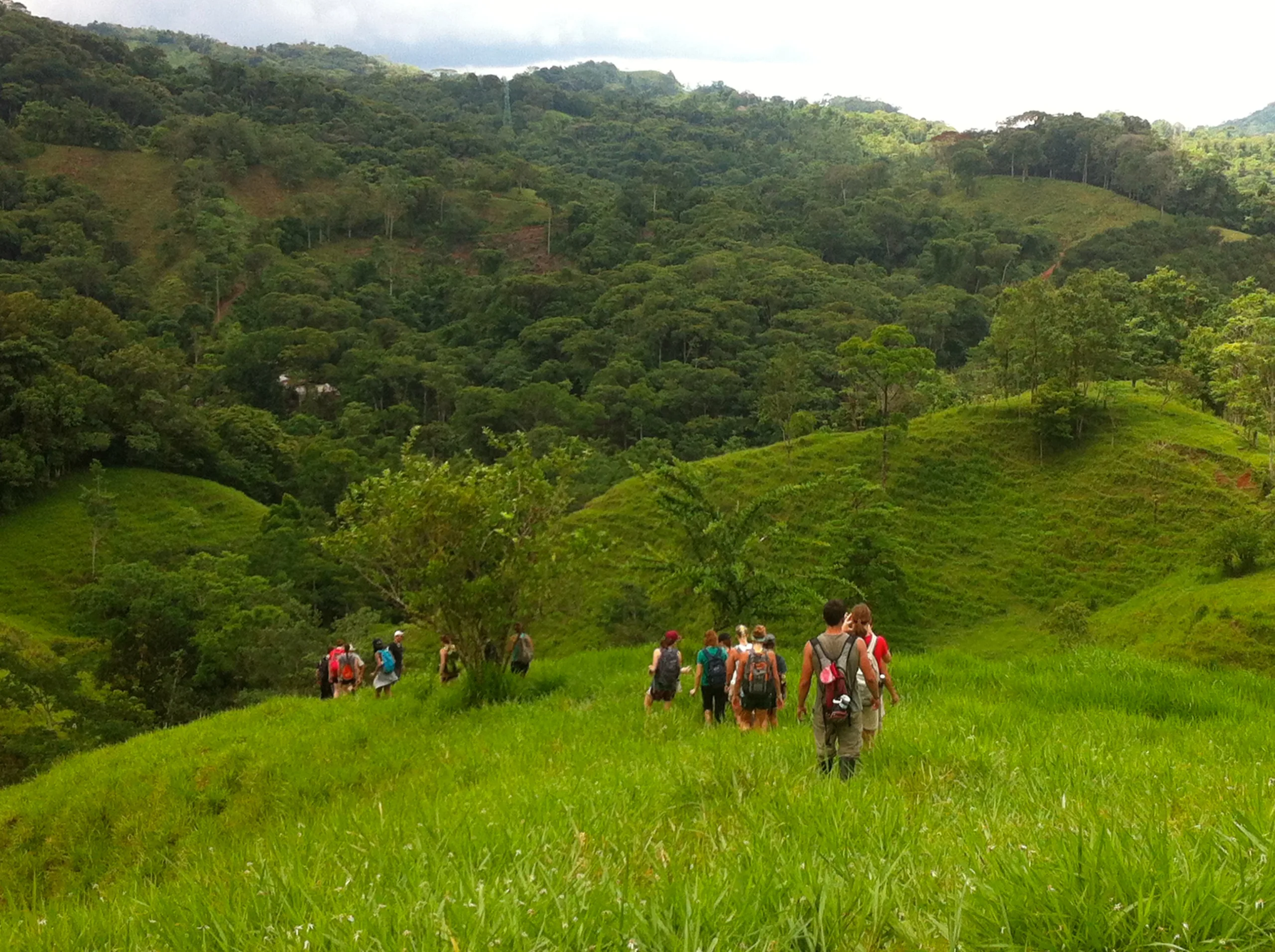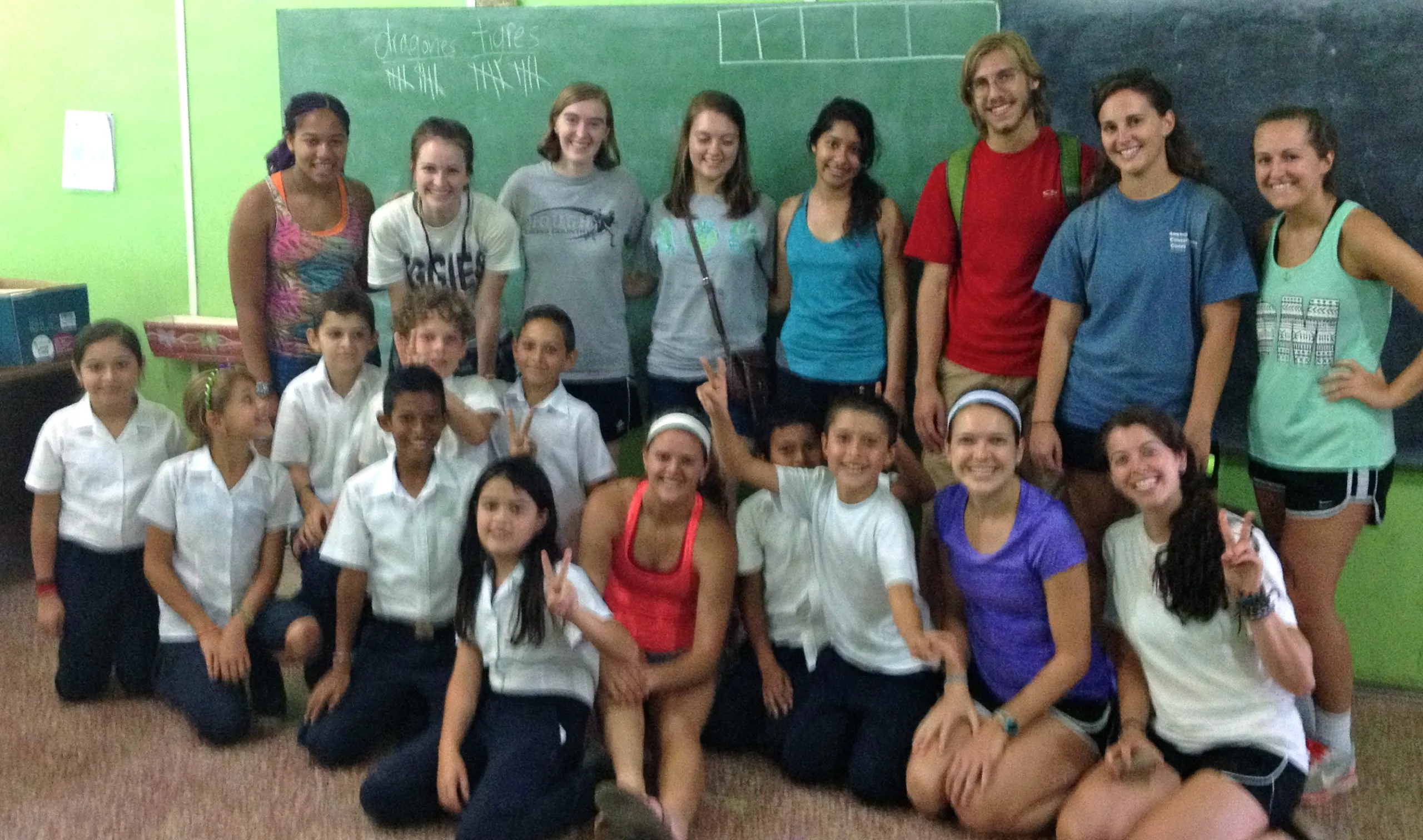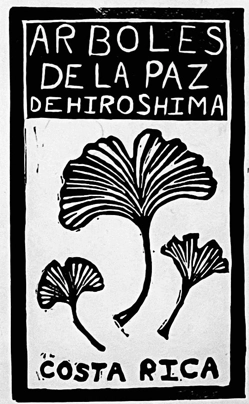Experiencing Sustainable Development in Costa Rica
It’s been three weeks since 22 eager and smiling students arrived at our campus in Atenas, Costa Rica. The last weeks have been a whirlwind as students adjusted to their tropical surroundings, diving into coursework and quickly learning about Costa Rica’s natural resources and ecology, as well as how sustainability can be balanced in “developing” nations and our own lives.
The first weeks of the program find students taking classes, doing field exercises, and taking several field trips around the country to better understand the environment of Costa Rica and its development situation. We’ve visited sustainable, organic farms, three national parks, an active volcano crater, the country’s most polluted river, and a mangrove forest.

But what distinguishes SFS from other study abroad programs is that instead of being passive observers, our students take on an active role through field exercises, community outreach, and conducting research. Students have surveyed national park visitors to improve park facilities and programs, participated in integrated pest management on our organic, Rainforest Alliance Certified farm, and given back to our community through two service projects. Each SFS program incorporates community outreach, which allows students opportunities to interact with community members and help us maintain positive relations with our neighbors.
Over the past year we have participated in language exchange activities with local students, watershed cleanups, turtle rescue center maintenance, and painting murals at our local community center, to name a few. Our summer program students have taught English lessons to local school children and prepared seedlings which will be planted in the municipal forest as part of a reforestation project later in Costa Rica’s rainy season. Additionally students regularly interact with community members at weekly Zumba dance classes, soccer games, and neighborhood bingo nights.

We’ve spent the last week in a small community on the edge of Carara National Park called El Sur de Turrubares, home to just about 60 people. Here each student has worked with a faculty member to develop an individual project, from calculating the carbon storage of the national park and bordering pastures to studying stream invertebrates and conducting surveys with the locals to better understand environmental education, the role of ecotourism, and recycling programs in the community. The research our students do is not only a productive learning experience, but an important opportunity for SFS to share its findings with other stakeholders in the communities in which we work and throughout Costa Rica.
With only a week left in the program, students are busy analyzing their data and working on final papers and presentations. The time has gone by so quickly; it’s hard to believe all we accomplished in just one month!
Related Posts

Trees of Peace from Hiroshima: A Time Traveler and Emissary of Hope

Restoration on a Cinder Cone: A Syntropic Story
